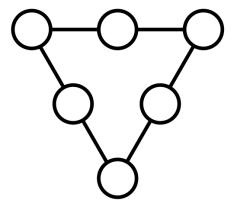From New Scientist #1927, 28th May 1994 [link]
My friend was towing a small open trailer behind his car when the tow bar snapped. Luckily the trailer was light, so he turned it upside down and put it (like a hat) on the roof of his car. Consequently traffic behind could see his number plate twice, once on the car and once (upside-down) on the trailer. Amazingly, despite the inversion, both looked the same.
Being a British car, the number plate consisted of a letter, three digits and three letters (the first of the three letters not being I, O, S or Z for fear of confusing it with a digit).
The three digits were different and formed a three-figure number which was not a prime, not the sum of two primes, and not the difference of two primes.
What was the full number plate?
Note that by May 1994, the first letter (indicating the year of registration) had got as far as L, and the letter I was not used.
[enigma772]















Recent Comments